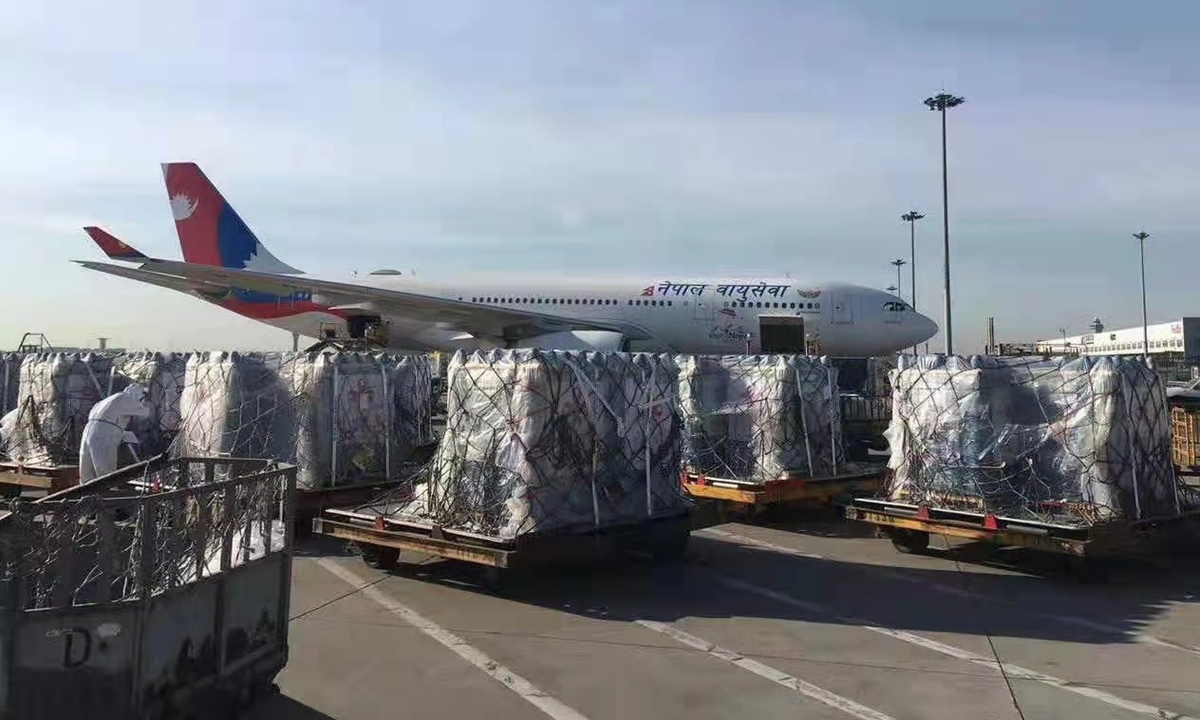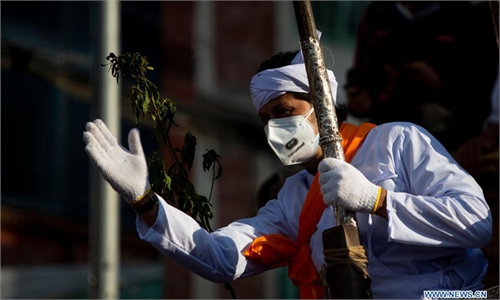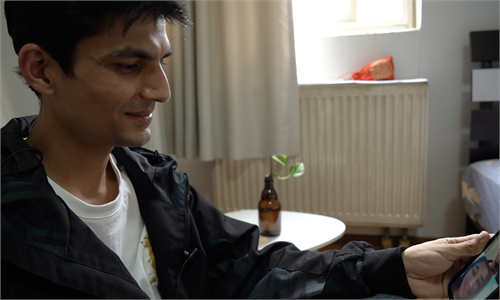Exclusive: China provides 2,000 oxygen cylinders to Nepal among other medical supplies, says Chinese ambassador

Oxygen cylinders provided by China under grant assistance arrives in Nepal. Photo: courtesy of the Chinese Embassy in Nepal
To help Nepal fight the latest surge of COVID-19 infections, China has so far shipped 2,000 oxygen cylinders and 10 ventilators to Nepal, in addition to 200 oxygen generators from Chinese companies in the country, Chinese Ambassador to Nepal Hou Yanqi told the Global Times in an exclusive interview on Tuesday.
The first batch of medical supplies has arrived at Kathmandu, the capital of Nepal, and Chinese firms in the South Asian country also donated 200 oxygen generators, the Chinese ambassador said, noting that local governments, enterprises and private groups in Southwest China's Sichuan Province and Tibet Autonomous Region, as well as Yunnan and Shanghai, have been allocating medical supplies and shipping them to Nepal. "They provide strong support for the people of Nepal in fighting the coronavirus and rescuing critically ill patients," Hou said.
Nepal, a country with a population of fewer than 30 million people, has been facing a severe COVID-19 resurgence, given the grave epidemic situation in its southern neighbor India. Local media reported that Nepal registered 214 deaths due to the coronavirus on Monday, taking its total death toll to 5,215, with overall nationwide infection cases reaching 464,218.
While rising infections are turning Nepal into "a mini-India," as some reports said, the country is reportedly facing a shortage of hospital beds, oxygen and other medical supplies as the country's medical system is scrambling to handle the resurging COVID-19 cases.
On April 27, Chinese State Councilor and Foreign Minister Wang Yi met virtually with his counterparts from five countries neighboring India including Nepal to discuss efforts to fight COVID-19 and post-epidemic recovery. The foreign ministers reached an agreement to build China-South Asia emergency supply reserves in enhancing the emergency response mechanism with increased capabilities in dealing with a huge public health crisis.
After China announced it would provide Nepal medical supplies following the video conference, the relevant departments of the two countries have been cooperating with each other closely and accelerating the implementation of the agreement, Hou said.
"It also fully demonstrated the Chinese people's friendship with the Nepalese people, vividly underscoring China-Nepal efforts to build a shared community on the public health issue," the Chinese diplomat said.
With an open border and frequent people-to-people exchanges, India's epidemic has been affecting Nepal. The future epidemic situation in Nepal depends on anti-epidemic measures adopted by the Nepalese government and local vaccination speed, Hou said. The peak of the second wave in Nepal would be reached in July with daily confirmed cases of about 11,000 people, she further noted, citing the local health authorities.
Nepalese Prime Minister K.P. Sharma Oli in early May asked the country's neighboring countries and the international community to offer assistance on vaccines and critical care medicine supply to support the country's anti-epidemic fight, Reuters reported.
Oli said that Nepalese government officials are in contact with China and Russia and other manufacturers to urgently secure vaccines, according to the report.
The Chinese government donated 800,000 doses of Sinopharm-developed COVID-19 vaccines to Nepal on March 29. And on April 7, the Nepalese government started administering the vaccines from China. Around 300,000 people have received the Sinopharm vaccine by the end of April.
Recently, the embassy launched the "spring sprout" vaccine program to help inoculate Chinese citizens in Nepal, and nearly 800 Chinese citizens in Nepal have been vaccinated through the program so far, Hou said.




